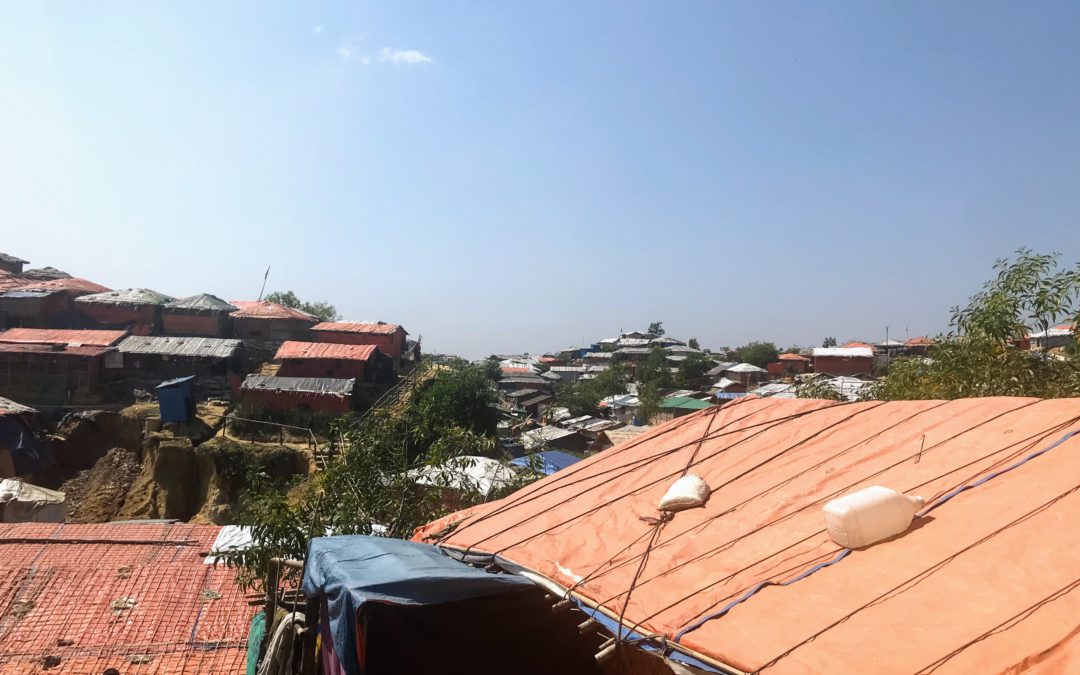As the COVID-19 virus affects more and more countries around the world – 199 countries to date – questions are starting to be raised about the preparedness of the Rohingya refugee camps in Bangladesh for the onset of the pandemic. Although cases have already been reported in Bangladesh, there are not yet any official cases in the camps near the city of Cox’s Bazar. There is, however, much reason for concern. It is becoming widely apparent that even well-established healthcare systems in countries of the Global North are struggling to manage the volume of COVID-19 patients, which calls into question how low-income countries will cope, especially if they host large numbers of refugees.
Refugee camps are particularly vulnerable to viruses since people live in close proximity and likely have previous underlying health conditions while the sites lack suitable infrastructure for combating the spread of disease. Cox’s Bazar is the site of one of the world’s largest refugee camps, accommodating approximately 1.1 million Rohingya people who mostly fled Myanmar in the summer of 2017 following state-sanctioned and military-led attacks that killed people and destroyed communities. These traumatized people live in already difficult conditions and now face a new threat from COVID-19.
There are several key reasons why the Cox’s Bazaar refugee camps are particularly vulnerable: housing without potable water and running water for toilets, lack of access to adequate healthcare and a potential shortage in medical supplies and testing capabilities, and lack of access to information.
The crowded houses in the camps are mostly made with bamboo poles for walls and tarpaulin sheeting for roofs. The vast majority of Rohingya camp residents live in this type of housing, built with the intention of temporary habitation. Additionally, a short supply of potable water and running water for toilets throughout the camps make the camps more likely to be the site of an outbreak (Fortify Rights, 2020).
As the Order of Malta pointed out “access to adequate healthcare is already limited in the Rohingya camps and a pandemic is likely to create an even larger gap in medical supplies, including masks, soap, and hand sanitizers.” Fortify Rights has noted that many refugees already contend with current or chronic health issues, making them especially susceptible to COVID-19.
A lack of information on preventive measures is also concerning in the context of a pandemic. Rohingya refugees have been banned from using the internet and mobile phones since 2019. During a pandemic, people without access to such communications channels lose out on vital information needed for informed decision-making. Fortify Rights has asked the government of Bangladesh to lift restrictions on internet and mobile communications during this precarious time. In this same article, Matthew Smith of Fortify Rights states that “If coronavirus reaches the camps, enforcing congestion and preventing the free-flow of information will only accelerate the spread of the disease.” Access to information is critical in such quickly evolving scenarios.
The government of Bangladesh, Rohingya-led groups, international aid agencies, and other partners have started to take steps on the ground to implement preventative measures. For instance, the United Nations High Commissioner for Refugees is monitoring for a potential outbreak and Bangladesh’s Health Ministry has completed and validated a national response plan to contain the virus. Humanitarian agencies working with the Refugee Relief and Repatriation Commissioner (RRRC) are finalizing a multi-sector plan that would focus on prevention and readiness (e.g. preparing testing kits and extra beds for quarantine), raising awareness around best-practices for hygiene, increasing facilities and supplies for hand washing, and increasing the water supply during crucial periods. However, support cannot come fast enough. It is important to remember those who are most vulnerable to a pandemic, especially since COVID-19 is turning many people’s attention inward, towards the situations in their own countries.

